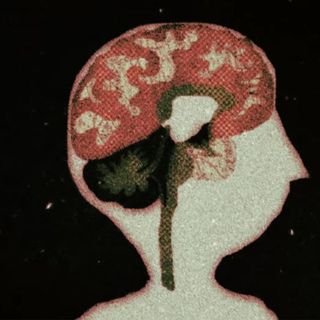Drinking a cold glass of water in big gulps or taking a hefty bite out of an ice-cream cone — both pleasurable activities, especially on a hot summer day — also have the ability to cause an individual immense, albeit shortlived, pain in the form of brain freezes.
Ominously called sphenopalatine ganglioneuralgia, brain freezes are benign, except for the few seconds they cause sharp, shooting, overwhelming pain — apparently as a method to signal to the individual ingesting the cold substance to “slow down” and “take it easy,” ScienceDaily reports.
How do brain freezes happen?
When a person is drinking icy water, for example, the substance is passing through the mouth too quickly to be registered by the receptors in the tongue; the cold is, however, changing the temperature in the back of the throat, neuroscientist Dwayne Godwin, Ph.D., tells ScienceDaily. Brain freezes happen because two important arteries intersect at the back of the throat — the internal carotid artery and the anterior cerebral artery responsible for ensuring constant blood supply to the brain. The coldness makes these arteries constrict — “a survival reflex to maintain your body’s core temperature,” according to assistant professor of head and neck surgery at Johns Hopkins, Wojtek Mydlarz. Soon after, the arteries dilate, or expand, facilitating a rush of blood within them. “This rebound dilation sends a pain signal to the brain through a nerve called the trigeminal nerve, whose upper branch extends into the midface and forehead,” Mydlarz says.
This is felt all the way up in the brain’s periphery where receptors called meninges to interpret the process as pain, Godwin adds.
Related on The Swaddle:
Taste Is More Than Just Flavor
The connection between brain freeze and migraine
People who suffer from migraines experience more frequent brain freezes, according to the director of Johns Hopkins headache center, Nauman Tariq. Migraines are known to occur due to changes in blood flow to the brain, similar to what happens in brain freezes. It is possible migraines render the internal blood flow systems more vulnerable to brain freezes. “The pain of brain freeze headaches is more intense and sharp than that of migraine … Both headaches can occur in the forehead and result in throbbing pain.”
Understanding the mechanism of brain freezes can make it easier for doctors and scientists to explore causes and cures for different types of headaches, Godwin says, adding “We can’t easily give people migraines or a cluster headache, but we can easily induce brain freeze without any long-term problems. We can learn something about headache mechanisms and extend that to our understanding to develop better treatments for patients.”
What’s the cure for brain freeze?
As for the cure for brain freezes, scientists say there is no cause to worry. 98% of brain freezes last less than five minutes and are harmless. Inducing warmth in the mouth, such as by pressing one’s tongue to the roof of the mouth, drinking a hot beverage or even ceasing to ingest the cold substance can provide instant relief from brain freezes.




